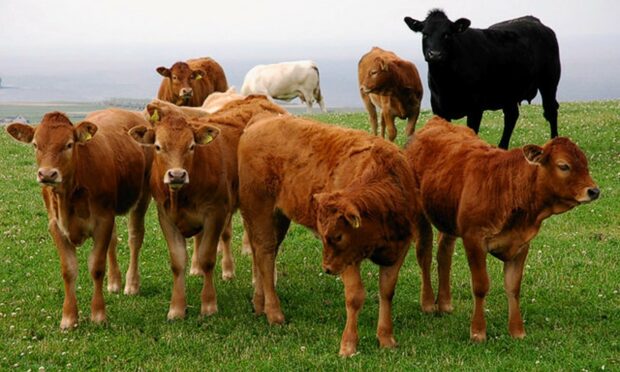Farmers and crofters enrolled in the Scottish Government’s new £45million Beef Efficiency Scheme (BES) will be told this week what animals need to be tissue tagged.
Government has also confirmed that tagging kits will be sent direct to producers from Neogen along with instruction leaflets and a short reply form.
Tissue sampling is a key element of the five-year scheme, which aims to improve the efficiency, sustainability and quality of the Scottish beef herd.
The 2,000 producers enrolled in the scheme are required to insert special ear tags in 20% of their young cattle. The tags punch out a small plug of tissue which is sent away from genetic evaluation.
Scottish Government came under fire last month for delays in getting tissue tags out to producers.
Rural Secretary Fergus Ewing has now confirmed the long-awaited release of the tags and said all farmers enrolled in the scheme will receive their tagging kit by the end of the year.
He also confirmed an extension to the return period for tags to June 30, 2017.
“This flexibility will allow farmers to carry out tagging at a time that suits their businesses and removes the need to carry out additional handling. However, we would ask that farmers return the samples to Neogen as quickly as possible,” said Mr Ewing.
“I also want to reiterate it is not necessary for farmers to hold off from selling their animals. Farmers should continue with their normal practices as we will ensure that the sampling regime accommodates those farmers who have sold their calves and that there will be no penalties for those who have. This may mean, however, that some farmers will have a higher rate of sampling next year.”
The list of animals requiring a tissue tag sample is available on the BES section of farmers’ ScotEID accounts.
NFU Scotland livestock committee chairman, Charlie Adam, said: “We welcome the announcement that farmers will be receiving their tissue tags soon. This is the next step in the scheme and we look forward to seeing the improvement in the national herd through better breeding information.
“This is not a fast process and we have a long journey ahead, nevertheless this is the first step on the road.”
